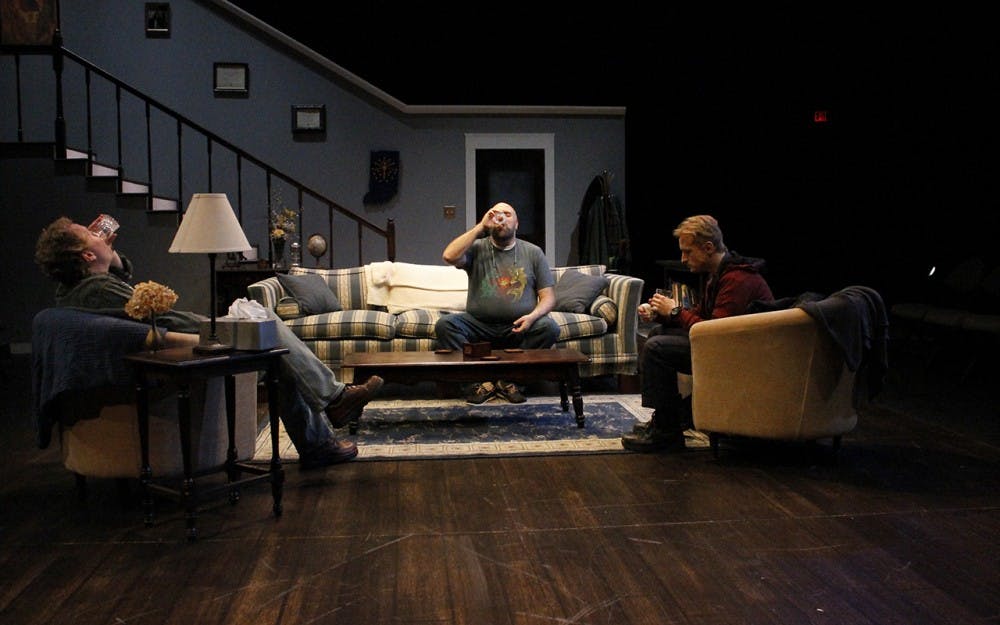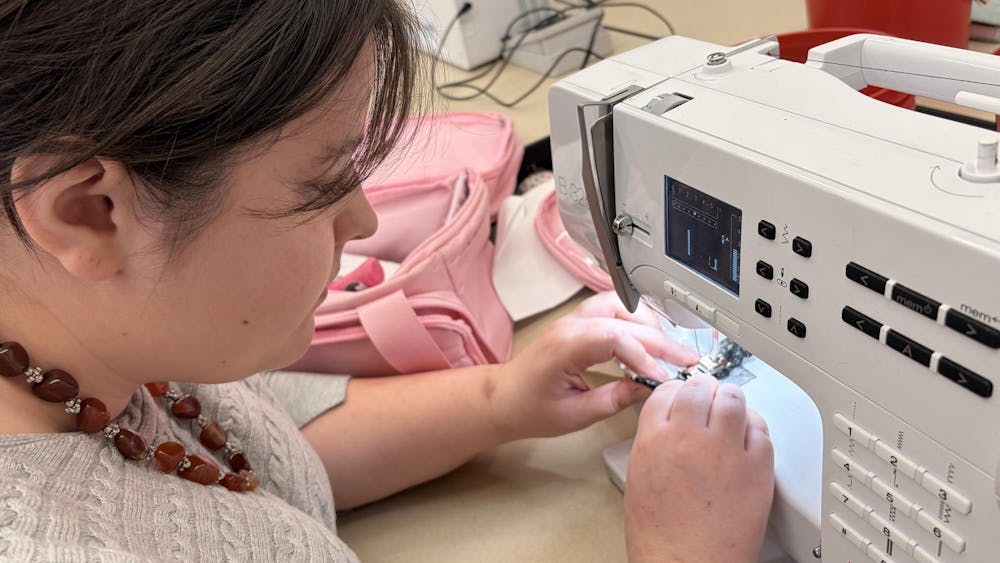Rex and Jacob have a seemingly perfect life. They own a picture-perfect house in Bloomington with a white picket fence border. The blue walls are decorated with college diplomas and pictures of them smiling together. They’re married and Rex, a retired pharmaceutical sales rep, is supporting Jacob’s in-home therapy practice.
But their relationship is on the rocks. Rex is growing tired of his husband, and they’re both dealing with the homophobia of Jacob’s Mennonite father. Then Ethan shows up.
Rex, Jacob and Ethan are the three characters who comprise the story of “Prospect Hill,” the newest play put on by IU’s Department of Theatre, Drama and Contemporary Dance. The play, written by MFA candidate Bruce Walsh, opens 7:30 p.m. Friday.
Walsh said the play started as an idea to bring together the two different circles he sees within Bloomington. In town, he sees many wealthy people, often associated with the University. On the other side, there are locals who are trying to get by and can often be put at a disadvantage because of the University.
Representing the Bloomington side in the play is Ethan. He’s a young kid who dropped out of Ivy Tech and is working as a delivery driver for Pepsi.
“He’s demographically a straight, white guy from Indiana without a college education,” Walsh said. “He’s in a certain camp, and he’s hyperaware of that. He’s got a lot of anger and frustration, and a lot of that has come from having those labels.”
Ethan is also struggling with a narcotics addiction and has a baby on the way with his girlfriend. He starts as Jacob’s therapy client but begins showing up outside of appointment times to seek advice from Jacob’s husband, Rex, on finances and how to become a pharmaceutical sales rep for Cook Medical.
This drives a deep wedge between the couple, who were already struggling with their own personal lives and outside problems.
The main idea for “Prospect Hill” came from Walsh’s time working and living in Philadelphia. He was working blue-collar jobs and struggling to make ends meet. He tried everything — UPS warehouse worker, waiter at a myriad of restaurants, tour guide.
He eventually was able to stabilize himself long enough to work for a couple of different newspapers and work on his playwriting. Then he said he saw the city from a different side of the tracks. The economic differences are easy to see in almost every town, he said.
“When you’re in those places, you see starkly different lives people are leading within the same small town,” he said. “No matter where you’re at or how privileged you are, or the lack of privilege you have, we come to the end of our resources at some point.”
The focus of the play is similarity, not difference. Walsh describes the play as an examination of the way we all plan our lives and try to do the right thing, but those ideas always break down.
Especially at this time in the United States people are being categorized in one camp or another. This could be politically or demographically, Walsh said. He wrote the play to help people question those labels. Are we taking demographics too seriously? Is that really who we are?
“I hope people walk out of it feeling less alone with whatever they’re going through,” composer Kimberly Osberg said. “We’re all going through this crazy thing called life together.”
Osberg worked with the sound team to compose the music and soundtrack for the beginning and end of the play and during the scene transitions. Because the show is so intimate and personal, she said she wanted the music to be simplistic.
The transition music between scenes is sparse. The idea is that it leads the audience in no direction — they don’t know whether what just happened was good or bad and they have no inclination of who is the protagonist or antagonist.
“Making the mood more ambiguous makes the audience not see the play in black and white,” she said. “A lot of this play presents the struggles and challenges of being a modern-day human being, especially in a place like Bloomington that has so many particular quirks.”






